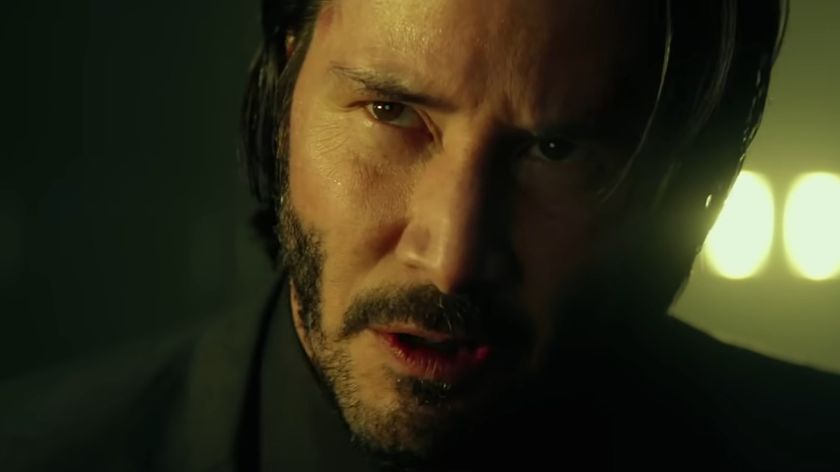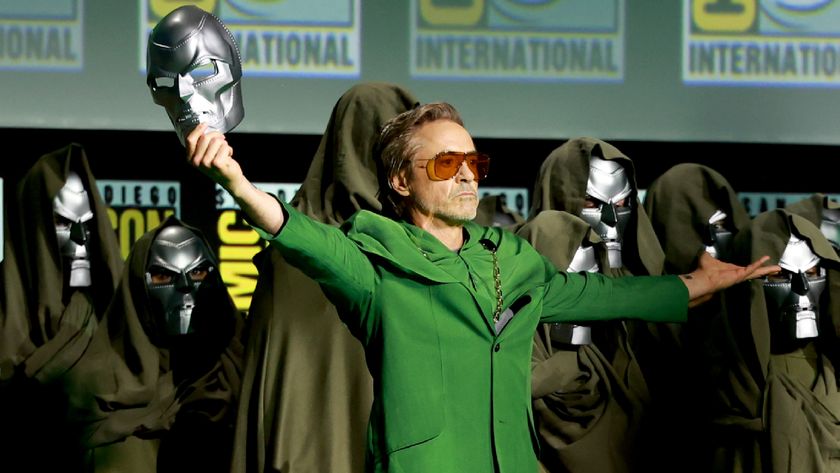12 Funny People Who Went Serious
The clowns who aren't just crying on the inside
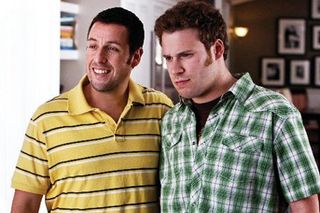
Funny People (2009)
The Clown: Angry man-child Adam Sandler
Crying On The Outside: Paul Thomas Anderson was the first director - in Punch-Drunk Love - to recognise that Sandler's askew screen persona (a goofy, innocent charm at right angles to an uncontrollable rage) might hide an actor of substance.
While his comedies during his Noughties have relied on an increasingly stale formula, Sandler's shown his range as a troubled family man in Spanglish and a grief-stricken widower in Reign Over Me .
This leftfield edge continues in Judd Apatow's Funny People - out on DVD and Blu-ray this week - where the laughs die on comic superstar George Simmons's (Sandler) lips when he is diagnosed with leukemia.
Give Up the Day Job? Please. Sandler's so much more interesting and likeable giving in to his insecurities. Although we wouldn't mind seeing him bring back Happy Gilmore.
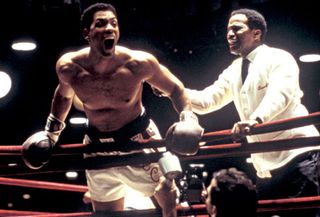
Ali (2001)
The Clown: The Fresh Prince himself, Will Smith
Crying on the Outside: Smith cannily broadened his options while still living with the Banks family in Bel-Air, when he played a con man pretending to be Sidney Poitier’s son in 1993’s Six Degrees of Separation .
Smith put his versatility on hold while he set about owning the hearts of Nineties blockbuster audiences. It wasn’t until 2001 that he bagged a heavyweight dramatic champ, Muhammed Ali, to add the sting to his wisecracking cool.
Give Up the Day Job? As one of the few stars genuinely capable of opening a hit movie, it's the sci-fi extravaganzas and comedies that continue to fill his C.V.
Alhough Smith was deservedly Oscar-nommed for Ali (ditto in 2007 for The Pursuit of Happyness) , arguably his true dramatic breakthrough eludes him. It has to irk to see his Ali co-star Jamie Foxx go one better by sealing the transition from sitcom star to real-life icon Ray Charles with a win.
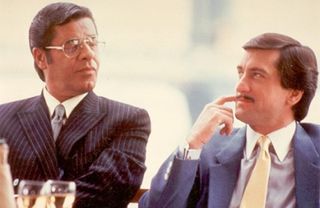
The King Of Comedy (1983)
The Clown: Jerry Lewis, the original Nutty Professor
Crying on the Outside: Revered by the French as an auteur of the absurd, back at home in the States Lewis was damned with faint praise as a mere goofball.
Lewis’ first attempt to prove his detractors wrong became one of Hollywood's most intriguing disasters. 1972 Holocaust drama The Day the Clown Cried proved so controversial it remains unreleased and largely unseen.
But Martin Scorsese made Lewis’ prickly personality central to The King of Comedy' s funny peculiar rhythms. As talk-show host and grouchy egomaniac Jerry Langford, Lewis is utterly convincing.
Give Up the Day Job? Sort of; Lewis soon settled into semi-retirement. However, The King of Comedy did anticipate similar ‘elder statesmen’ cameos in Funny Bones and The Simpsons (playing the father of Professor Frink, a character knowingly modelled on Lewis’ Nutty Professor).
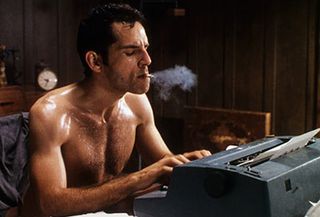
Permanent Midnight (1998)
The Clown: Frat-packing Ben Stiller
Crying on the Outside: While he made his name in comedy via TV sketch anthology The Ben Stiller Show , Stiller’s early career leaned just as heavily towards drama.
Check out his low-laugh roles in Empire of the Sun , Reality Bites and - the high watermark - Permanent Midnight , a biopic of writer-turned-junkie Jerry Stahl that required Stiller to wield a needle. Less punchlines, more puncture lines.
Give Up the Day Job? Four words: There’s Something About Mary . The glee with which audiences followed his ouch-that's-gotta-hurt misfortunes drove Stiller straight into the comedy A-list as the Frat Pack’s leading exponent of stupidity – Gaylord Focker, Derek Zoolander, White Goodman, etc etc.
That's not to say Stiller won't try on a serious face in the future, but... we kind of think it's going to look exactly like Blue Steel.
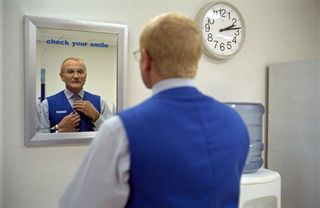
One Hour Photo (2002)
The clown: Robin Williams, putting the pace into pathos.
Crying on the Outside: Beamed into movies via Mork and Mindy , Williams quickly established himself as more than just a funnyman with semi-serious roles in Good Morning Vietnam and Dead Poet's Society . Even his slapstick came tinged with sentiment: Mrs Doubtfire , anyone?
But it wasn't until after he bagged his coveted Oscar for Good Will Hunting that Williams dared to go fully to the dark side, achieving a notable one-two of creepy villains in 2002's Insomnia and One Hour Photo.
Give Up the Day Job? His tragi-comic persona netted millions, but turns out audiences weren't quite ready to see Williams go full-psycho. Since then, he's kept a low profile voicing animation ( Robots , Happy Feet ) and taking a supporting role in Night At The Museum 's comic ensemble.
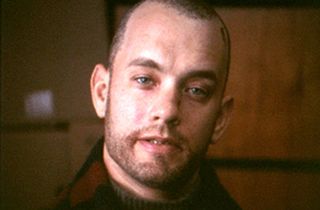
Philadelphia (1993)
The Clown: Big kid Tom Hanks
Crying on the Outside: Gangly, exuberant and barrels of fun, Hanks was one of the most likeable comic stars of the 80s thanks to Splash , The Money Pit and Big . 1993’s Sleepless in Seattle hinted he’d stepped up to become the rom-com king.
Yet, that same year, Hanks swapped glamour for pallor to play Andrew Beckett, a homosexual lawyer dying of AIDS. Physically drained but spiritually heroic, it was such a volte-face that the Academy virtually carved his name onto the gold fella there and then.
Give Up the Day Job? Resigned, effective immediate - bar the odd bit of moonlighting as Sheriff Woody. Philadelphia made Hanks the Oscar-bait dramatic actor of the Nineties in Forrest Gump , Apollo 13 and Saving Private Ryan.
Attempts to go pitch-black a la career model James Stewart ( Road To Perdition , The Ladykillers ) have been largely unsuccessful… but Hanks now has a franchise to fall back on as thinking man's action hero Robert Langdon.
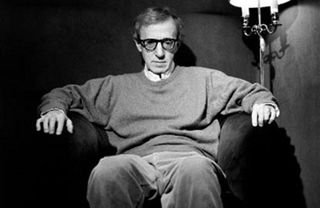
Interiors (1978)
The Clown: The Nero of neurosis, Woody Allen
Crying on the Outside: 1977's Oscar hog Annie Hall confirmed Allen as the comedic icon of the 70s, establishing a new kind of funnyman - quick-witted but wimpy, thinker rather than doer - and a style of humour rooted in seriousness.
Woody could do anything he wanted...and what he wanted was to stay behind the camera to make a glacial family drama in homage to his hero Ingmar Bergman, that well-known tickler of funnybones.
Ever heard the crack about Woody's "early, funny ones?" Everything before Interiors , basically.
Give Up the Day Job? Allen has incorporated serious into his day job, setting a template that everyone from Steve Martin to Zach Braff has tried to emulate.
While the comedies themselves got heavier, Allen still reserves the right – occasionally – to make a flat-out austere, miserabilist chamber-drama.
Useful rule of thumb: if Woody’s not starring, chances are he’s not even trying to be funny.
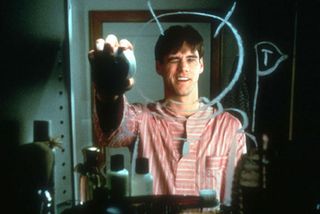
The Truman Show (1998)
The Clown: Rubber-faced ball of energy Jim Carrey
Crying on the Outside: Carrey doesn’t look like he can cry – and the permanent, manic high he introduced in Ace Ventura: Pet Detective and The Mask was beginning to get annoying by 1998.
And then Peter Weir realised that Carrey’s inherent weirdness was perfect for a potentially uncastable role: Truman Burbank, the man whose entire life is a studio-generated lie. Carrey keeps that unique, oddball aura, but reigns it in enough to become remarkably touching.
Give Up the Day Job? Carrey seems hamstrung in flat-out dramatic leads like The Majestic and The Number 23 . He remains bankably bonkers, if arguably uninspired, in Bruce Almighty and Yes Man .
But find one of the rare roles that lie in the no-man's-land in between, and Carrey can bring Eternal Sunshine through the clouds.
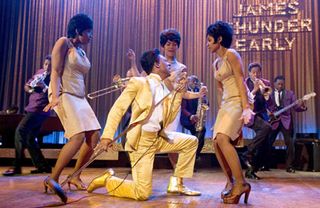
Dreamgirls (2006)
The Clown: Whipsmart, fast-talkin' Eddie Murphy
Crying on the Outside: A global superstar icon in the 1980s for playing essentially the same role, during the Nineties Murphy's versatility improved in inverse proportion to the quality of the material. Sometimes, he played more roles than there were laughs in the movie.
But as James “Thunder” Early, Murphy married the swagger of his screen persona to the incendiary scandals of his personal life to deliver a raw, vivid portrayal of a singer on the skids.
Give Up the Day Job? Murphy lost out on a widely-predicted Oscar, with some commentators believing that the release of Norbit – one of his worst-reviewed movies – had thwarted his chances.
Since then, Murphy has reverted to type, playing safe with Shrek sequels and low-rent kids' fare like Meet Dave , but there's still time.
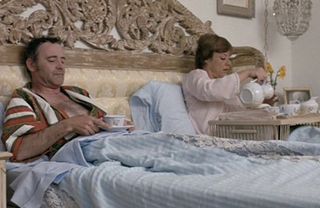
Save The Tiger (1973)
The Clown: Cross-dressing jitterbug Jack Lemmon
Crying on the Outside: Lemmon was never, technically, a funnyman – as his startling early role as an alcoholic in Days of Wine and Roses proved.
But the humour of his breakthrough, Oscar-winning role in Mister Roberts paved the way for innumerable collaborations with Billy Wilder ( Some Like It Hot ), Walter Matthau ( The Odd Couple ), or both ( The Front Page ).
Until Save The Tiger . As struggling businessman Harry Stoner, the only funny thing about him is his name, Lemmon twisting that panicky persona inward to create a bitter, thwarted failure.
Give Up the Day Job? With Grumpy Old Men decades away, Lemmon's second Oscar signalled a noticeable shift towards tragedy in The China Syndrome , Missing and as Shelley Levene in Glengarry Glen Ross – although the latter role was turned back into comedy by The Simpsons , whose character Gil Gunderson is an obvious pisstake
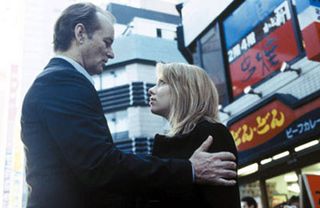
Lost in Translation (2003)
The Clown: Bone-dry Bill Murray
Crying on the Outside: Does Bill Murray even know he's supposed to be a comedian? The art of his genius lies in refusing to acknowledge the fun in funny.
Arguably, his entire career straddles the funny/serious line - which side does Rushmore fall on? - but Sofia Coppola's Tokyo romance marked a newfound candour.
True, Murray remains hilarious delivering his droll, downbeat commentary on life's ills to Scarlett Johansson...but here the deadpan is edged with real depth of feeling.
Give Up the Day Job? The difficulty of knowing what Murray's day job is means he's been able to carry on much as before.
The conundrum continues right up to his cameo in Zombieland : laugh, cry, or be slightly freaked out?
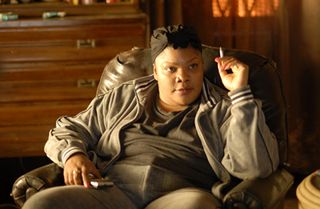
Precious (2009)
The Clown: Girth of mirth Mo'Nique
Crying on the Outside: Famous in America as a sitcom star and talk show host, Mo'Nique isn't that well-known in Britain. Yet.
But her incendiary, Oscar-tipped performance as an abusive mother in Precious (in cinemas next week) will make her unforgettable, to the point where comedy may no longer be a career option.
Trust us, you won't be laughing.
Give up the day job? Short-term, she's going to have to take time off to build an awards cabinet. In the long run, we foresee a bright future as a character actress.
Most Popular




